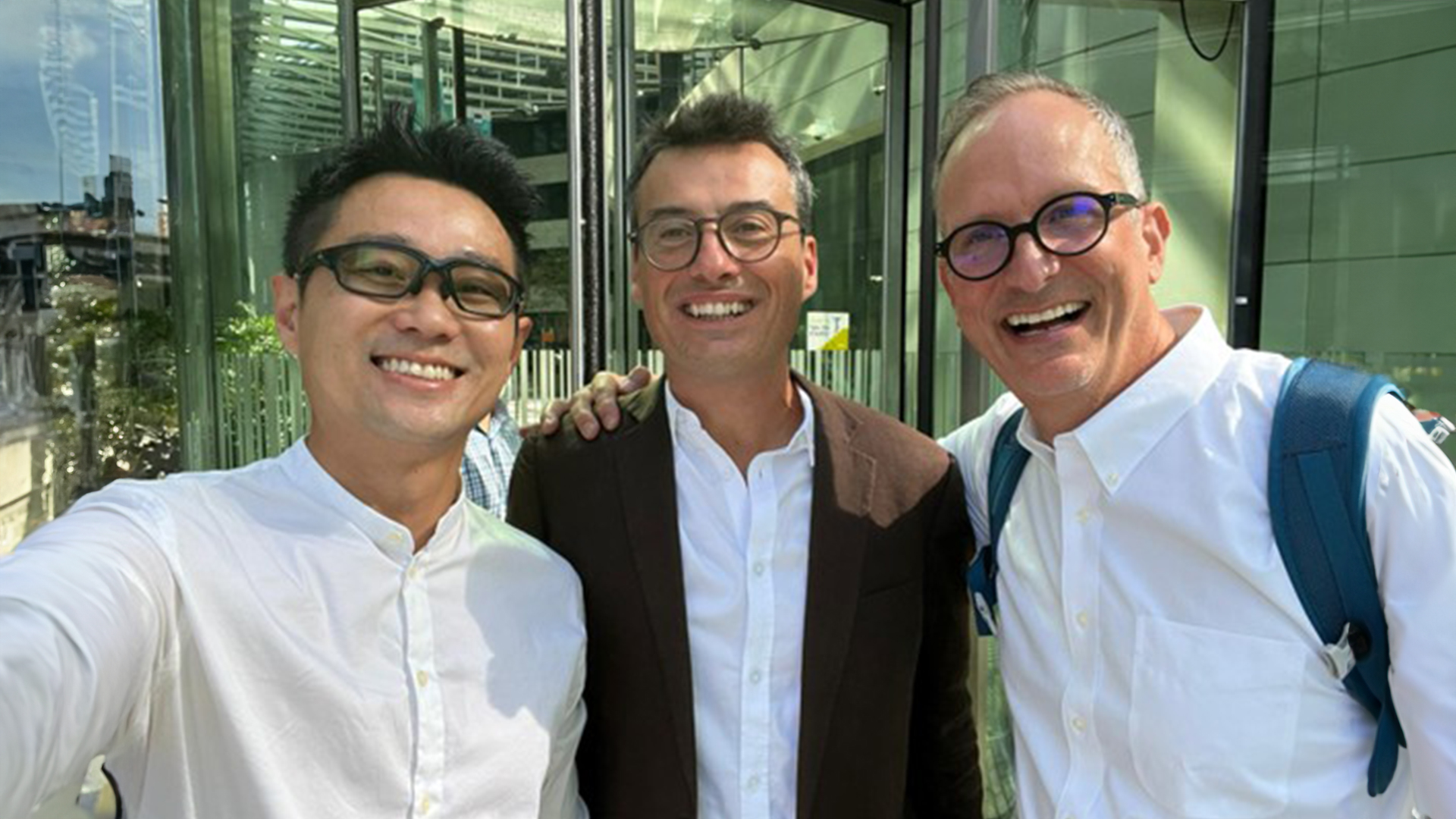Geoastronomy: Bridging Earth and the Cosmos to Understand Rocky Exoplanets
A total of €571 million in funding has been awarded to fifty-seven research groups to tackle some of the most complex scientific problems, spanning a wide range of disciplines. The European Research Council (ERC) Synergy Grants encourage collaboration among outstanding researchers, allowing them to combine their expertise, knowledge, and resources to push the boundaries of scientific discovery. The international research team – which includes Hungary-based scientist and project founder Prof. Stephen Mojzsis – embarks on an unprecedented journey to uncover the chemical composition of rocky exoplanets orbiting Sun-like stars, thereby gaining a deeper understanding of our own planet.
The European Research Council (ERC) has awarded an ERC Synergy Grant for the gro-undbreaking „GEOASTRONOMY” project, an ambitious scientific endeavor that seeks to reveal the chemical foundations of rocky exoplanets around Sun-like stars. The project, led in Hungary by Prof. Stephen Mojzsis from the HUN-REN Institute for Astronomy and Earth Sciences, is the second Synergy Grant awarded to a Hungarian institution, following the one received by renowned scientist László Barabási and László Lovász. The other investigators sharing this grant are Dr. Fabrice Gaillard from CNRS, France and Prof. Kevin Heng from Ludwig-Maximilians-Universität München. The project represents an unprecedented synergy between astronomy, planetary geochemistry, and astrophysics.

The winning team, from left to right: Prof. Kevin Heng, researcher at Ludwig-Maximilians-Universität in Munich; Dr. Fabrice Gaillard, researcher at the French CNRS and Prof. Stephen Mojzsis, senior researcher at the HUN-REN Centre for Astronomy and Earth Sciences
The six-year research theme aims to unravel the complex geochemical and geophysical processes of already-formed, mature rocky exoplanets by fusing astronomical data with planetary geoscience, petrology, and expe-rimental astrophysics. Dr. Mojzsis explains, “There are five primary natural sciences, and while we’ve seen geo-logy pair with chemistry and biology, the missing piece has always been an alliance between geology and astro-nomy. With GEOASTRONOMY, we’ll finally explore the rocky foundations of planets in a cosmic context, and thus, understand Earth better."
Project Highlights:
- Groundbreaking New Field: GEOASTRONOMY pioneers a new field combining Earth sciences and astronomy, offering insights into rocky exoplanets’ chemical makeup, internal structure, and atmosphe-ric properties.
- Immediate Impacts: By leveraging data from next-generation telescopes like the James Webb Space Telescope (JWST), GEOASTRONOMY aims to advance the exoplanet community's understanding of secondary, hybrid, and magma-ocean atmospheres in rocky worlds orbiting Sun-like stars.
- Synergistic Leadership: The project’s success depends on the complementary expertise of the three lead researchers, each bringing unique strengths in planetary geochemistry, experimental petrology, and theoretical astrophysics. This collaboration allows GEOASTRONOMY to pursue questions that would be impossible for any single discipline to address alone.
Long-Term Impact and Educational Goals
GEOASTRONOMY has implications that reach far beyond the scientific community. One of the project’s long-term goals is to create an academic curriculum based on its findings, aimed at students and young scientists. This educational initiative will help build future expertise in GEOASTRONOMY, fostering a generation of rese-archers equipped to bridge geosciences and astrophysics in the study of exoplanets.
As Prof. Mojzsis summarizes, “By understanding the fundamental chemistry of rocky worlds, we’re not only answering questions about distant planets but also deepening our knowledge of Earth itself. GEOASTRONOMY is more than an academic pursuit; it’s a vision to expand humanity’s place in the universe.”
"A renewed HUN-REN and the Hungarian research ecosystem will become even more competitive if we provi-de our researchers with the best tools and attract top experts from around the world, positioning Hungary as an appealing alternative in the rapidly evolving scientific landscape. Stephen Mojzsis’s work and his fellowship are prime examples. We are pleased to have him here, contributing to the international reputation of Hungarian science and serving as a role model for Hungarian scientific talent," said Balázs Gulyás, President of the Hungarian Research Network.
Dr. László Kiss, Director General of the HUN-REN Institute for Astronomy and Earth Sciences, added, “The presence of Stephen Mojzsis and the success of this ambitious ERC grant confirm that it was inde-ed a wise decision to bring a renowned researcher, a leading figure in the scientific community, from the United States to Budapest three years ago.
Why GEOASTRONOMY Matters for Society
With billions of potentially habitable planets in the Milky Way, GEOASTRONOMY brings us one step closer to answering one of humankind’s oldest questions: Are we alone in the universe? This ERC-funded project will provide critical insights into the geochemical and geophysical processes governing exoplanet atmospheres, enriching our understanding of planetary systems and possibly guiding future missions in the search for life. By expanding our knowledge of the fundamental elements that shape planets, GEOASTRONOMY will have far-reaching impacts on science, technology, and our collective understanding of the cosmos.
With a projected start date in April-May 2025 and an initial six-year timeframe, the GEOASTRONOMY team is poised to set the foundation for an entirely new field of study well into this century.

